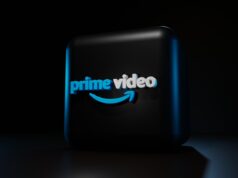After many months of discussions, most of the major U.S. Internet service providers have signed an agreement Thursday to take action against users who violate copyrights. AT&T, Cablevision Systems, Comcast, Time Warner and Verizon are among the ISPs participating in the plan, which has the strong support of many movie, music and other entertainment industry entities including the MPAA, the RIAA, IFTA and A2IM.
The voluntary “Memorandum of Understanding” (link goes to PDF) is based on what are known as Copyright Alerts, as was disclosed on June 23. This approach is intended to overcome one of the major arguments against disconnecting accounts that are being used for piracy, that too often the person who pays the bill is unaware such activity is occurring. In other cases, the accused infringer is unaware of the applicable laws.
By initiating a system of graduated Copyright Alerts consumers will have more advance warning and educational opportunities before extreme penalties are implemented. This will replace the current practice of DMCA violation notices being sent to the ISP, who then forwards them to the account holder.
Now, account holders will receive five levels of warning before punitive measures are taken. They are outlined on the newly launched Center for Copyright Information website, but basically consist of actions including warnings and then pop-up warnings that must be acknowledged by the user. On the fifth warning, ISPs may begin what are called “mitigation measures” such as slowing down the Internet connection or diverting the user to an educational website. Account holders may request an independent review at any time upon payment of a $35 processing fee.
“This is a sensible approach to the problem of online-content theft and, importantly, one that respects the privacy and rights of our subscribers,” said Randal S.Milch, executive vice president and general counsel of Verizon in a statement.
Both Michael O’Leary, Executive Vice President for Government Relations at the Motion Picture Association of America (MPAA) and Cary Sherman, president of the Recording Industry Association of America (RIAA), said that piracy put the jobs of many industry workers at risk, and that the provisions of this agreement would lead consumers to discover the multitude of content now legitimately available online.
“Consumers have a right to know if their broadband account is being used for illegal online content theft, or if their own online activity infringes on copyright rules – inadvertently or otherwise – so that they can correct that activity,” said James Assey, executive vice president of the National Cable & Telecommunications Association (NCTA). “We are confident that, once informed that content theft is taking place on their accounts, the great majority of broadband subscribers will take steps to stop it. That’s why the educational nature of this initiative is so critical.”
Even the White House issued a statement of broad support for this coalition’s efforts.
Some advocacy groups were more cautious, however. A statement issued jointly by the The Center for Democracy & Technology and Public Knowledge said the agreement met many but not all of their concerns regarding the rights of the average citizen, and that “close ongoing scrutiny will be required to ensure that the agreement achieves its purpose without unfair or disproportionate consequences for Internet users.”
Photo by flickr user srqpix, used under Creative Commons license
Related Links:
Center for Copyright Information: http://www.copyrightinformation.org
The full Memorandum of Understanding (PDF): http://tinyurl.com/3atyg8e
White House statement: http://tinyurl.com/42c7ekm









